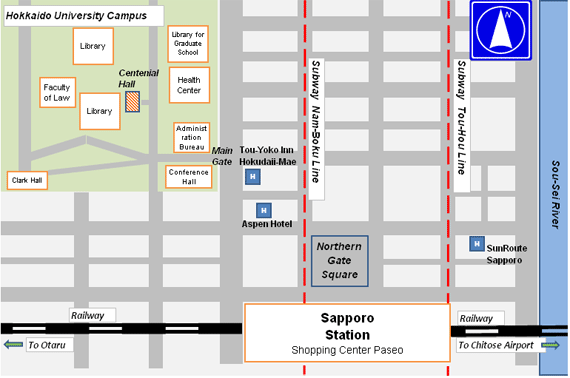Objectives
In many Asian countries rapid economic growth has been accompanied by an increase in waste generation and this has resulted in an increase of the transboundary movement of recyclable resources. Electrical and electronic waste, i.e. E-waste is a great concern among researchers and policy makers due to its potential for serious environmental pollution. Many issues have been raised in association with E-waste cycles, such as inappropriate disposal and recycling methods, the increase in both domestic generation and international trade of E-waste, insufficient disposal facilities, and inadequate enforcement of regulations.
The 3R (Reduce, Reuse and Recycle) Initiative was agreed upon by the G8 leaders at the Sea Island Summit in 2004, based on a proposal by the Japanese government, and the government presented “Japan’s Action Plan to Promote Global Zero-Waste Societies” which sets out the nation’s ideas for the establishment of a Sound Material Cycle Society through the promotion of the 3Rs throughout the world. Moreover, the problem of E-waste has drawn increasing attention from people in Japan as many obsolete home electronic appliances and personal computers are being exported to other countries and activities to promote the proper management of E-waste are being undertaken in Asian regions and beyond, such as the "Environmentally Sound Management of E-waste in Asia-Pacific" project (2005 - 2008), implemented by the Secretariat of the Basel Convention, and the Partnership for Action on Computing Equipment (PACE), adopted in June 2008 by the ninth meeting of the Conference of the Parties of the Convention.
NIES has organized workshops on E-waste annually since 2004. At the past workshops, we shared our understanding of the current state of E-waste issues at national, regional, and international levels with experts from Asia and other regions, and discussed the future tasks for the promotion of the 3Rs of E-waste.
Recently, an international comparative study of domestic flow, the quantitative analysis of transboundary movement, and efficient recovery methods for valuable metals are being explored in regards to the material flow analysis of E-waste. Additionally, a detailed survey of toxicity and methods of evaluation, as well as specific efforts for the collection and recycling of E-waste for the prevention of environmental pollution and health damage are required. At the Sixth NIES Workshop on E-waste, which will be held on December 7, 2009, we will focus on several important aspects of E-waste, such as recycling/treatment process, resource and toxic potentials and current problems with the collection, reuse and recycling systems. The purpose of this workshop is to promote information exchange between experts, and contribute to a solution for E-waste issues. We are looking forward to your participation.
| Date | December 7(Mon), 2009 |
|---|---|
| Venue | Hyakunen-kinen Kaikan (Centennial Hall), Hokkaido University 676-13 Kita 8, Nishi 5, Kita-ku, Sapporo 060-0808, Japan http://www.hokudai.ac.jp/en/documents/map_english.pdf |
| Organizer | NIES http://www.nies.go.jp/index.html |
| Language | English |
| Participation Fee | Free |
| Registration | Participants other than speakers are required to pre-register. Send your name, affiliation, and contact address (Mailing address, E-mail, TEL and FAX) as soon as possible to 6e-waste@nies.go.jp |
 |
|
|
EcoDesign 2009 Dec. 7-9 at Royton Sapporo http://www.mstc.or.jp/imf/ed/index.htm (English) |
|
Tentative Program
| December 7th 9:30 |
<Venue: Hyakunen-kinen Kaikan (Centennial Hall), Hokkaido University > Registration |
|---|---|
| 10:00 | Opening Remarks by Susumu Ohta (Executive Director of NIES) |
| 10:15-12:00 | Session 1“Classification of e-waste recycling technology in Asian developing countries” Chairperson: Aya Yoshida (NIES)
Aya Yoshida (NIES, Japan)
Nguyen Duc Quang and Huynh Trung Hai (Hanoi University of Technology, Vietnam) Rolly Tallod and Florencio C. Ballesteros, Jr. (Univ. of the Philippines Diliman, Philippines) |
| 12:00-13:30 Lunch | |
| 13:30-15:00 | Session 2 “Toxicity and Evaluation of E-waste Recycling” Chairperson: Shinsuke Murakami (Univ. of Tokyo) Shin Takahashi (Ehime Univ., Japan) Sukandar, S.Si (Institut Teknologi Bandung, Indonesia) Masahiro Oguchi (NIES) , Shinsuke Murakami (Univ. of Tokyo), Hirofumi Sakanakura (NIES) and Akiko Kida (NIES) |
| 15:00-15:20 Coffee break | |
| 15:20-17:00 | Session 3 “Collection, Reuse and Recycling System of E-waste” Chairperson: Michikazu Kojima (IDE-JETRO) Fumikazu Yoshida (Hokkaido Univ.) and Haruyo Yoshida (Sapporo Univ.) Rie Murakami-Suzuki (NIES) and Sung-Woo Chung (JSPS/ IDE-JETRO) Eric Williams (Arizona State Univ., USA) |
| 17:00-18:00 | Overall Discussion Chairperson: Atsushi Terazono (NIES)
Huynh Trung Hai (Hanoi University of Technology, Vietnam) |
| 18:00 | Summary & Closing remarks by Atsushi Terazono |
Secretariat/Organizer Ms. A.Yoshida, Mr. K. Takahata, Ms. M. Watanabe, Ms. K. Sato
National Institute for Environmental Studies / Research Center for Material Cycles and Waste Management
TEL: +81-29-850-2506 FAX: +81-29-850-2931 E-mail: 6e-waste@nies.go.jp
About your personal information:
Following registration, NIES may use the address or e-mail address you have provided to send you announcements about future events such as seminars. If you do NOT wish to receive such announcements, please clarify “NO” in your application.
Your personal information will be carefully protected by the Workshop Organizer (NIES).
